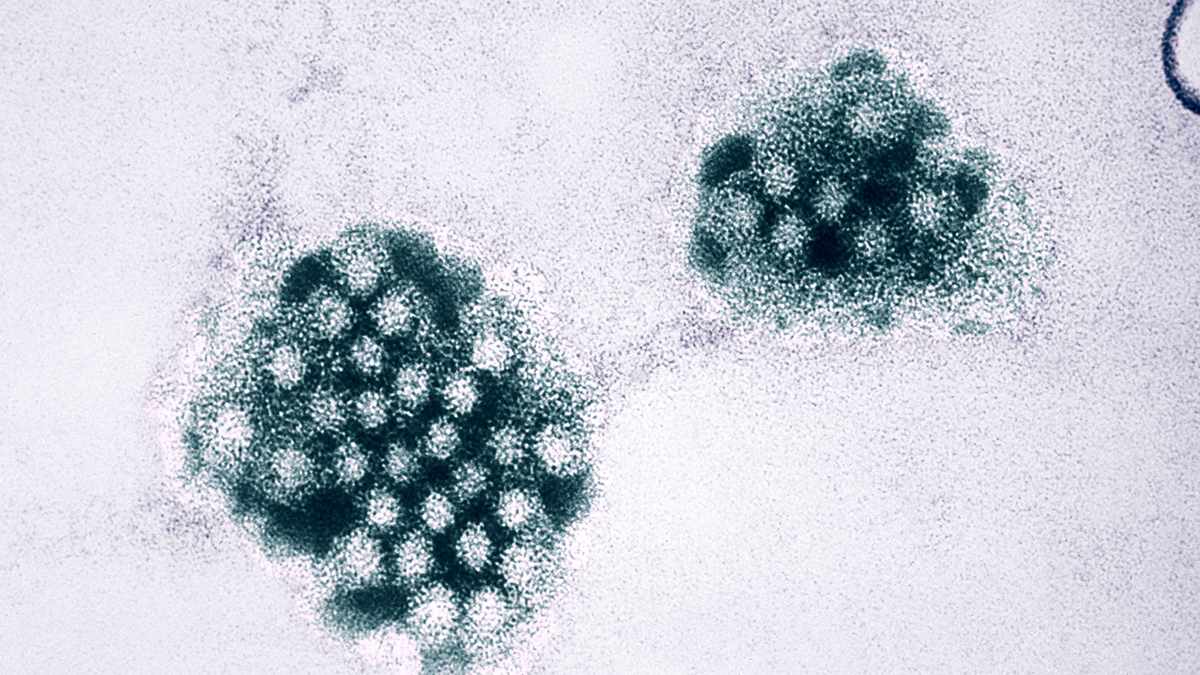There's an alarming outbreak causing concern among health officials in New Jersey, as norovirus has been spreading rapidly — and doctors say it is highly contagious.
Commonly known as the stomach flu, it’s a highly contagious virus now spreading across the Garden State. Health officials said that in Dec. 2023, there were 15 norovirus (or norovirus-like) outbreaks reported statewide. A year later, there were 70 such occurrences, a 350% increase year over year.
It's not just New Jersey – there’s been a sudden spike nationwide in norovirus cases. It comes as states have been dealing with increases in flu, COVID and RSV cases. But why norovirus has come on so strong, so fast, remains unclear.
Watch NBC 4 free wherever you are
"New Jersey, like the rest of the country, is seeing an increase in cases. It's spread by people, so if we’re going to point to something, we’re going to point to people," said Dr. Ed Lifshitz, of the state's Department of Health.
Get Tri-state area news delivered to your inbox with NBC New York's News Headlines newsletter.
The Centers for Disease Control and Prevention (CDC) says the illness can be extreme, with symptoms including diarrhea and vomiting. To help avoid catching the virus, they recommend proper hand washing, as well as keeping food, surfaces and laundry clean.
But there is one common thing that is not very effective.
"Conventionally formulated hand sanitizer is not very effective against norovirus," said Don Schaffner, a microbiology professor at Rutgers University. "What I would say is: This spike is out of the ordinary for recent memory, but remember, we had a global pandemic. We were shut down, that made it harder for norovirus to spread."
Norovirus symptoms
Norovirus symptoms typically begin 12 to 48 hours after exposure to the virus, per the CDC. These are often sudden and "explosive," says Schaffner.
Common norovirus symptoms include:
- Diarrhea
- Vomiting
- Abdominal pain or cramps
- Nausea
People often vomit or have diarrhea many times, and these can happen simultaneously, says Schaffner.
Less commonly, people may experience a low-grade fever or chills, fatigue and body aches, according to the Cleveland Clinic.
How long does norovirus last?
Norovirus symptoms typically last one to three days, and most people will recover on their own completely. “People get over this after a few days of being miserable,” says Schaffner.
Is norovirus deadly?
In most cases, norovirus is not life-threatening and deaths are rare, especially in the U.S. However, it can cause severe disease and complications. “The concern is always dehydration because of the fluid loss through vomiting and through diarrhea," says Schaffner.
The people at highest risk of severe illness include young children, older adults, and people who have compromised immune systems or underlying conditions such as diabetes or heart disease, Schaffner notes.
Signs of dehydration include decreased urination, dry mouth or dizziness, per the Mayo Clinic. Children may cry without tears, have dry lips or sunken eyes, and become fussy or lethargic, TODAY.com previously reported.
How does norovirus spread?
Norovirus spreads between people very easily. "It’s an extraordinarily communicable, transmissible virus," says Schaffner.
Once infected, a person can shed billions of norovirus particles in their vomit and stool. “It takes a very small number of (particles) to initiate an infection,” says Schaffer. People become infected when these virus particles accidentally end up in their mouths.
Transmission of norovirus may occur through:
- Direct contact with a sick person
- Sharing food or utensils with a sick person
- Consuming food or drinks contaminated with the virus
- Touching contaminated surfaces then touching your mouth
- Inhaling aerosols from a sick person's vomit
Most outbreaks of norovirus happen when infected individuals spread the virus to other people through close contact, per the CDC. Common settings for norovirus outbreaks include schools, day cares, cruise ships, nursing homes, and healthcare facilities.
The virus particles can live for extended periods on surfaces such as doorknobs, toilet handles, sinks and counters, which makes it easy to spread through indirect contact as well.
Norovirus is also the leading cause of foodborne illness in the U.S., per the CDC. “Norovirus can contaminate many foods, particularly foods that aren't cooked,” says Schaffner. These include raw shellfish, particularly oysters and clams, which can become contaminated when they filter-feed polluted water, NBC News previously reported.
How long is norovirus contagious?
Norovirus is contagious from the moment symptoms begin until at least a few days after symptoms resolve. People infected with norovirus can shed the virus even after they recover, says Schaffner. It's possible to spread norovirus to others for two weeks or more after you feel better, per the CDC.
Norovirus particles are hardy and difficult to kill thanks to their firm outer shell, says Schaffner. Alcohol-based hand sanitizers or cleaners are not as effective against norovirus, which is why proper handwashing is key to prevent the spread.
Norovirus treatment
There's no specific antiviral treatment for norovirus, says Schaffner.
Norovirus will typically resolve on its own, but rest and supportive care can help manage symptoms. Rehydration is key, Schaffner notes. Drinking water, sports drinks and oral rehydration solutions can help replenish fluids lost during diarrhea and vomiting.
High-risk individuals or people with severe disease may require additional care, such as intravenous fluids, says Schaffner.
If norovirus symptoms become severe, persist or worsen after a days, or you can't keep fluids down, seek medical attention.
How to prevent norovirus
There is no vaccine available against norovirus, says Schaffner, but there research to develop one is ongoing.
In the meantime, you can take the following actions to protect yourself and others against norovirus, according to experts:
- Wash your hands often.
- Cook shellfish thoroughly.
- Stay home when sick.
- Avoid cooking for others while sick.
- Disinfect contaminated surfaces with a bleach solution.
- Launder soiled bedding or clothes on high heat.
Caroline Kee of TODAY.com contributed to this report.




